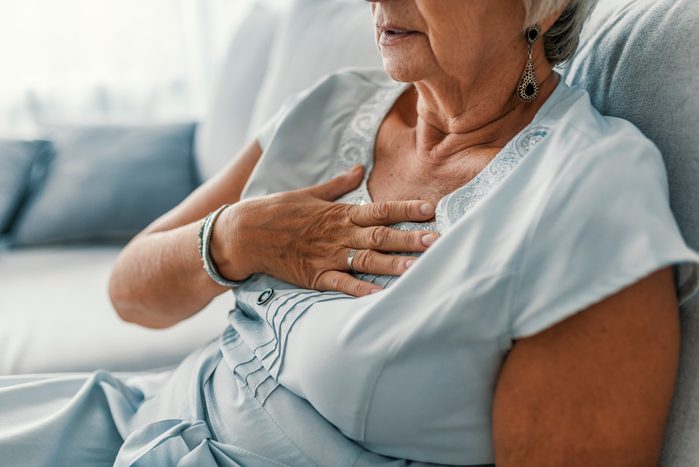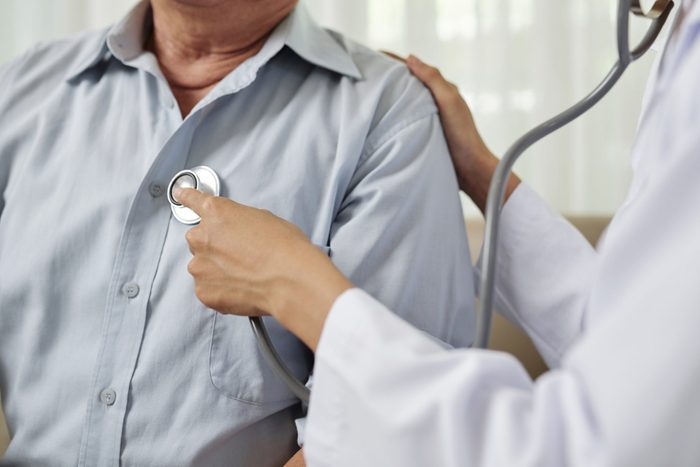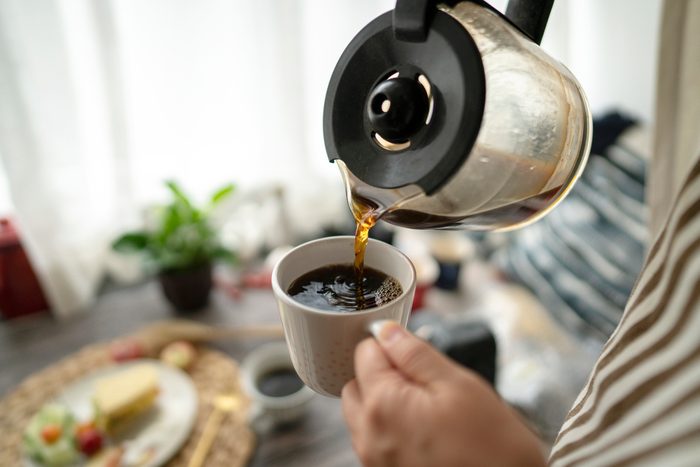
When it comes to the holidays, people don’t usually go for healthy appetizers. Instead, most hosts serve up rich finger foods that include bacon, cheese or buttery pastry—sometimes all three together. Many people drink far more than a moderate amount, starting early with mimosas, followed by drinks that flow all day. Although the Centers for Disease Control (CDC) defines moderate drinking as two drinks or fewer per day, overindulgence is as much a part of the holiday season as glitter.
Unfortunately, for some people, there’s a cost to pay beyond a stomachache or hangover. It‘s called holiday heart syndrome, and it’s serious.
One May 2021 study in the International Journal of Cardiology suggested cardiac mortality is higher around Christmas and New Year’s than at any other time of year. “Holiday heart syndrome is essentially when the heart exhibits an irregular heartbeat after overindulging in alcohol or salty foods,” explains Dr. Rami Hashish, Ph.D., DPT, a body performance and injury expert. “The term was coined by Phillip Ettinger in 1978 [when he] discovered a connection between binge drinking and heart arrhythmias in otherwise healthy people.”
Keep reading to learn about holiday heart syndrome, including what symptoms to look for, what to do if you or someone you’re with senses it, and how to prevent this holiday heart issue.

What does “holiday heart” feel like?
The telltale indicator of holiday heart syndrome is a change or irregularity in the heartbeat. “This results in a series of symptoms,” explains Dr. Hashish, “including difficulty breathing, chest pain, and feeling as if your heart is racing.” Holiday heart syndrome often occurs in otherwise healthy people.
In addition to the symptoms mentioned above, Dr. Puja Uppal, a board-certified family physician, says to watch out for heightened anxiety. “During atrial fibrillation, your heart isn’t pumping well,” Dr. Uppal explains. “Your brain, your lungs, and the rest of your body are essentially starved of oxygen, and your body says, It’s time to panic!”

What should you do if you feel the symptoms?
The American Heart Association (AHA) reports that more people die of heart attacks during the last week of December than any other time. If you feel any signs that things aren’t right, you should seek medical attention immediately. If you feel pain in the chest, shortness of breath above the lungs, jaw or neck pain, nausea or pain in your arm or shoulder, these can be signs of a heart attack.
“Don’t put off getting medical help for symptoms, even if it means a trip to the emergency room instead of opening presents,” says Dr. Gregory Jantz, a pioneer of whole person care since the 1980s. Jantz points out that according to an AHA study, “More cardiac deaths occur on December 25 than on any other day of the year. The second-largest number occurs on December 26, and the third-largest number occurs on January 1.”

How is holiday heart linked to alcohol?
“The pathophysiology of holiday heart syndrome is not completely understood,” Dr. Hashish explains. “However, generally, it’s believed that excessive alcohol consumption leads to cellular and structural changes of the cardiac system, thereby affecting the heart’s normal ability to function.”
Holiday heart syndrome isn’t limited to the Christmas and Hanukkah season. It can occur on vacation, at the end of the semester, at a football game—basically, anytime we binge drink and overindulge in sweet or salty foods.

Is holiday heart always linked to alcohol?
Holiday Heart Syndrome isn’t always linked to alcohol. “Atrial fibrillation can happen with the ingestion of large amounts of energy drinks, caffeine, and even with recreational drug use,” says Dr. Uppal. “Holiday heart can happen with anything that can negatively impact your heart’s electrical system.”

What does stress have to do with it?
Stress has a lot to do with it. We all know it’s easier said than done, but it’s essential to be mindful of the havoc stress can have on our overall health, especially during the hectic pace of the holiday season. “Make time to take care of yourself during the holiday season,” reminds Dr. Jayne Morgan, MD, cardiologist and the clinical director of the Covid task force at Piedmont Hospital in Atlanta, GA. “Celebrate in moderation,” Dr. Morgan says. “And remember that if you don’t make time for your wellness, you will be forced to make time for your illness.”
Broken Heart Syndrome Is Real—and It’s One of the 5 Heart Conditions Most Common in Women

How can holiday heart syndrome be prevented?
Dr. Morgan reminds people to stay on schedule with their medication, whether they’re away from home or just taking a break from their regular routines. “If you have sleep apnea and are traveling, take your machine with you,” Dr. Morgan says.
But the best—most foolproof—way to prevent holiday heart syndrome is to be aware of what you’re eating and drinking. It might seem impossible when the hot artichoke dip comes out of the oven or your cousin offers another round of martinis, but moderation is your friend. If you’re not sure how, try Dr. Stacie J. Stephenson’s Rule of Halves.
The “Rule of Halves” is a moderation technique to cut your vices and improve your health. “Cutting out vices cold-turkey can be tough, so the Rule of Halves starts with 50%: one glass of wine instead of two, a single shot instead of a double,” Dr. Stephenson explains. “Another easy way to cut back is by crafting healthy mocktails,” suggests Dr. Stephenson. Try alternating cocktails with mocktails, which automatically halves your consumption. Also, don’t forget water.
“Hydrate, hydrate, hydrate,” advises Dr. Morgan, “Dehydration increases your risk.” Moving the body and avoiding a sedentary holiday season are also important. “As appealing as it may be to relax during the holidays,” Dr. Hashish says, “try to stay physically active to lower stress, burn calories, and keep your heart healthy.”
For more health tips, follow The Healthy on Facebook, Instagram, and Twitter. Keep reading:
